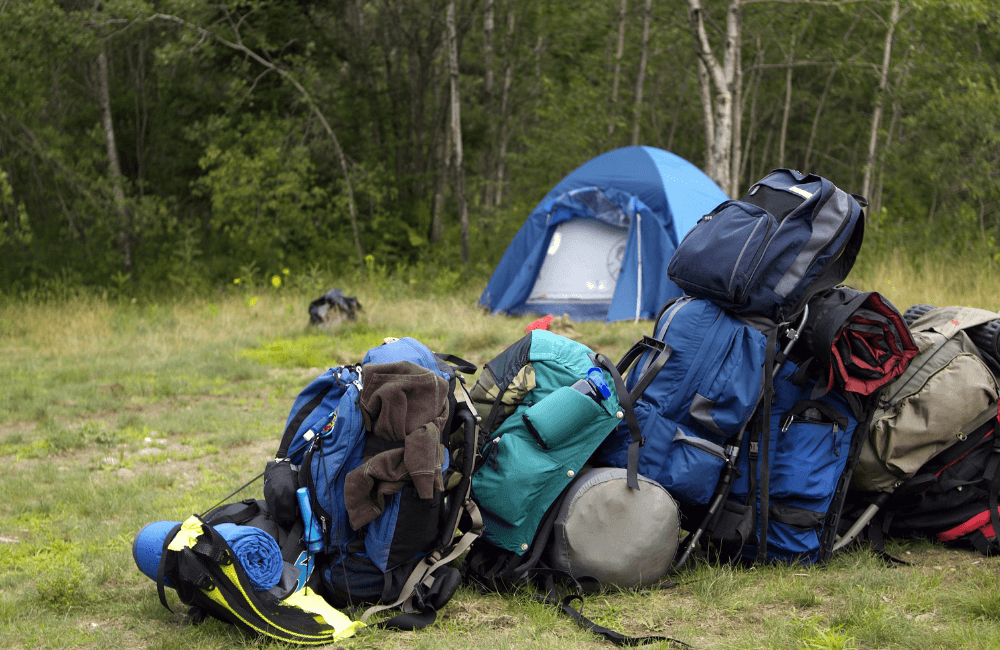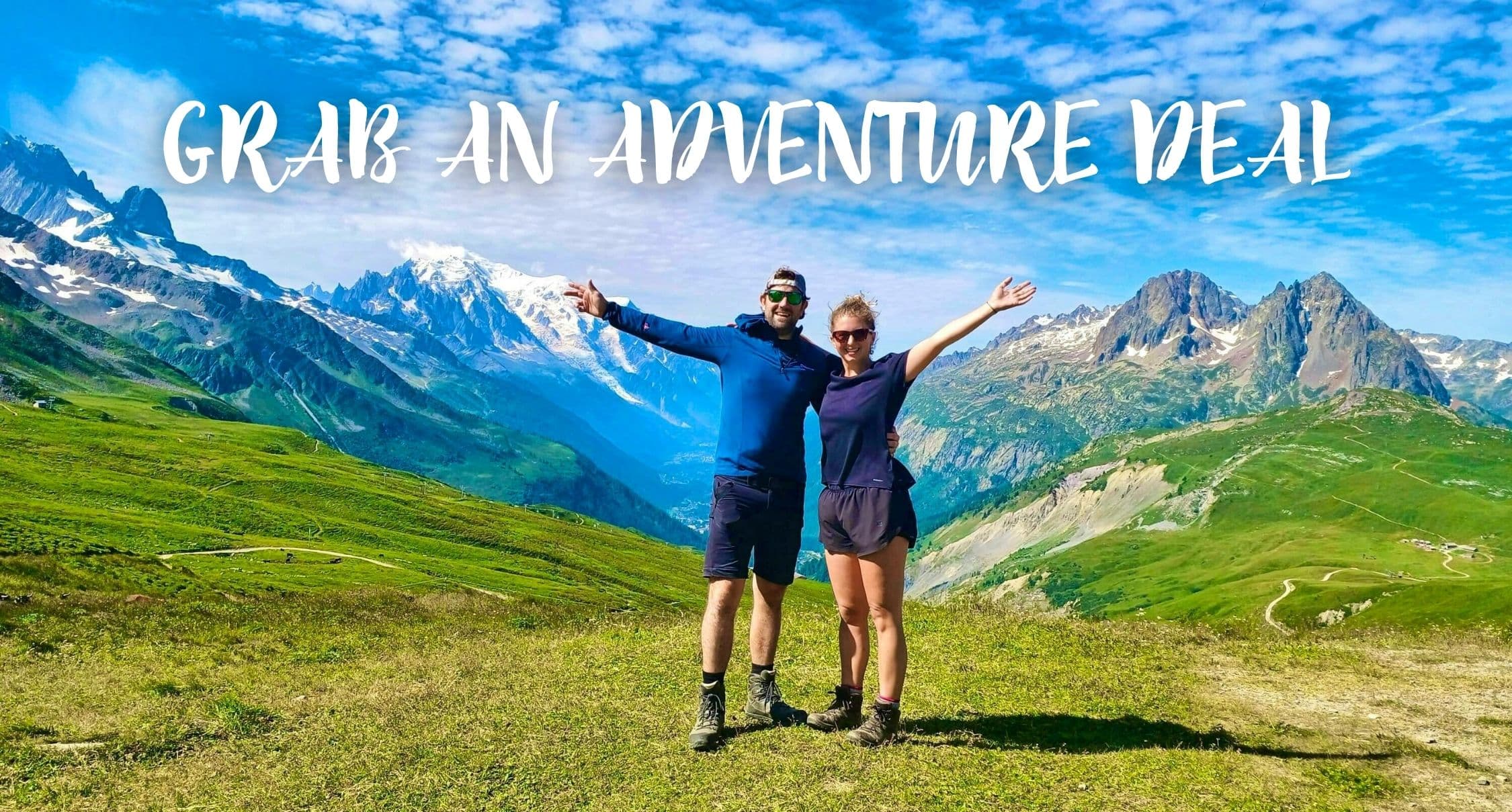Backpacking Vs. Hiking: Fancy a Stroll or Ready to Rough It?
One moment, you're considering what to take hiking. Then, you're at the trailhead, map in hand, gazing at the path that winds its way into the distance.
What comes to mind about the adventure ahead? Wait, what is the adventure ahead?
We know something at Skyhook: to understand your adventure, you must know the differences between hiking vs. backpacking.
So, are hiking and backpacking just two peas in a very muddy pod, or are they as different as a gentle stroll and a marathon? Let's tell you more!

Hiking Vs Backpacking: The Definitions
At their core, both hiking and backpacking involve travelling nature on foot. But that's where the similarities start to thin out.
Hiking typically refers to day trips on trails or paths in natural settings. You'll carry a light pack with essentials like water, snacks, and perhaps a first aid kit.
Backpacking involves multi-day journeys where you carry everything you need on your back - a tent, sleeping bag, food, cooking gear, the works. It's a self-sufficient adventure that takes you deeper into the wilderness.
But we've also talked about hiking vs. mountaineering. So, how different is backpacking from mountaineering?
Well, mountaineering is the more technical, often more extreme alternative to backpacking. It involves ascending mountains, frequently at high altitudes, and requires specialised skills and equipment. Backpacking is a long walk that stretches many days, while mountaineering is a long hike that takes days to complete.
Plus, you're aiming to achieve something with mountaineering - often reaching the summit of a high mountain, while backpacking is not so goal-oriented.

The Differences Between Hiking and Backpacking
Here are some differences between hiking and backpacking to clarify things:
1. Duration
One of the most obvious differences between hiking and backpacking is the duration of the expedition.
Hikes typically last anywhere from a couple of hours to a full day. You head out in the morning, enjoy the trail, and return to the comfort of your own bed by nightfall.
It's perfect when you want to experience nature without committing to a lengthy expedition.
A backpacking trip will stretch over multiple days or even weeks. You'll spend your nights under canvas or in mountain huts, waking up to misty mornings in the wilderness.
It's an immersive experience that allows you to truly disconnect from the daily grind and connect with nature.

2. Gear
For a hike, you can get by with a small daypack carrying water, snacks, a light waterproof jacket, and a basic first aid kit. You can also choose your footwear, from hiking shoes and boots - it all depends on the terrain!
With backpacking, you'll need a larger, more supportive backpack to carry your shelter, sleeping system, cooking equipment, multiple days' worth of food, and often water filtration systems. Your boots will likely be sturdier to support the extra weight you're carrying.

Latest Deals
3. Terrain
While hiking and backpacking can take you through beautiful natural landscapes, the terrain you encounter differs.
Hiking trails are often well-maintained and clearly marked. They might have amenities along the way, like benches for resting or signposts with distance markers. And you're less likely to find yourself in truly remote areas on a typical day hike.
Backpacking routes, however, can take you far off the beaten track. You might find yourself navigating with map and compass, fording streams, or picking your way across boulder fields. The terrain is often more challenging and remote, which is part of the appeal for many backpackers.

4. Physical Demands
Hiking will be as easy or as difficult as you want to make it. A gentle ramble through woodland trails might be suitable for most fitness levels, while a steep ascent up a mountain will test your cardiovascular fitness and leg strength.
On a backpacking trip, you'll up the ante considerably. On top of walking, you're carrying a heavy pack, often over challenging terrain, for multiple days in a row. It requires a more physical fitness, endurance, and mental toughness.
Put simply, after a Skyhook day hike, you might feel pleasantly tired. After backpacking expeditions, you'll likely feel like you've completed a marathon (or three)!
5. Skills Required
For most hikes, basic navigation skills and an understanding of hiking safety are sufficient. You should know how to read a map and use a compass, understand the basics of hiking etiquette, and know what to do in case of common emergencies.
Backpacking requires all of these skills and then some. You'll need to know how to set up camp, cook in the wilderness, manage your resources over multiple days, and possibly deal with wildlife encounters. As such, advanced navigation skills are often crucial, as is the ability to read weather patterns and adapt your plans accordingly.

6. The Experience
The most significant difference between hiking and backpacking is the overall experience.
Hiking offers a wonderful taste of nature. It's a chance to stretch your legs, breathe fresh air, and take in beautiful scenery. You can challenge yourself physically and mentally, then return to the comforts of home at the end of the day.
With backpacking, however, you're going for total immersion in nature.
Whether in Kilimanjaro or Everest Base Camp, you'll be outdoors for the duration and experience the wilderness at all hours - from misty dawns to star-filled nights. It's a chance to disconnect from the modern world and reconnect with something more primal.

Wrapping Up…
What do you prefer between a hike and a backpacking trip?
If you're new to outdoor adventures, you can start with some day hikes. Build your fitness, learn basic skills, and see how you enjoy spending time in nature.
As you gain experience and confidence, you might find yourself drawn to longer, more challenging hikes.
And if the idea of carrying everything you need on your back and spending nights under the stars appeals to you, then backpacking might be your next big adventure.
You can start with a weekend trip close to home, and who knows - you might soon find yourself planning a week-long expedition in the Alps on our Tour du Mont Blanc trip!
Find your next adventure
Why Skyhook?
Join over 31,000 Skyhook adventurers who've used our platform to book directly with our vetted local guides, at local prices (we never markup).
Expert Local Guides
Experienced local guides, handpicked by us.
Best Prices
Never pay a markup on the local guide's price.
Exclusive Club
Earn loyalty rewards every time you travel.
Great Social Vibes
Small group tours provide a richer experience.
Stellar Feedback
Over 3,600 reviews, average of 4.9/5 stars.






